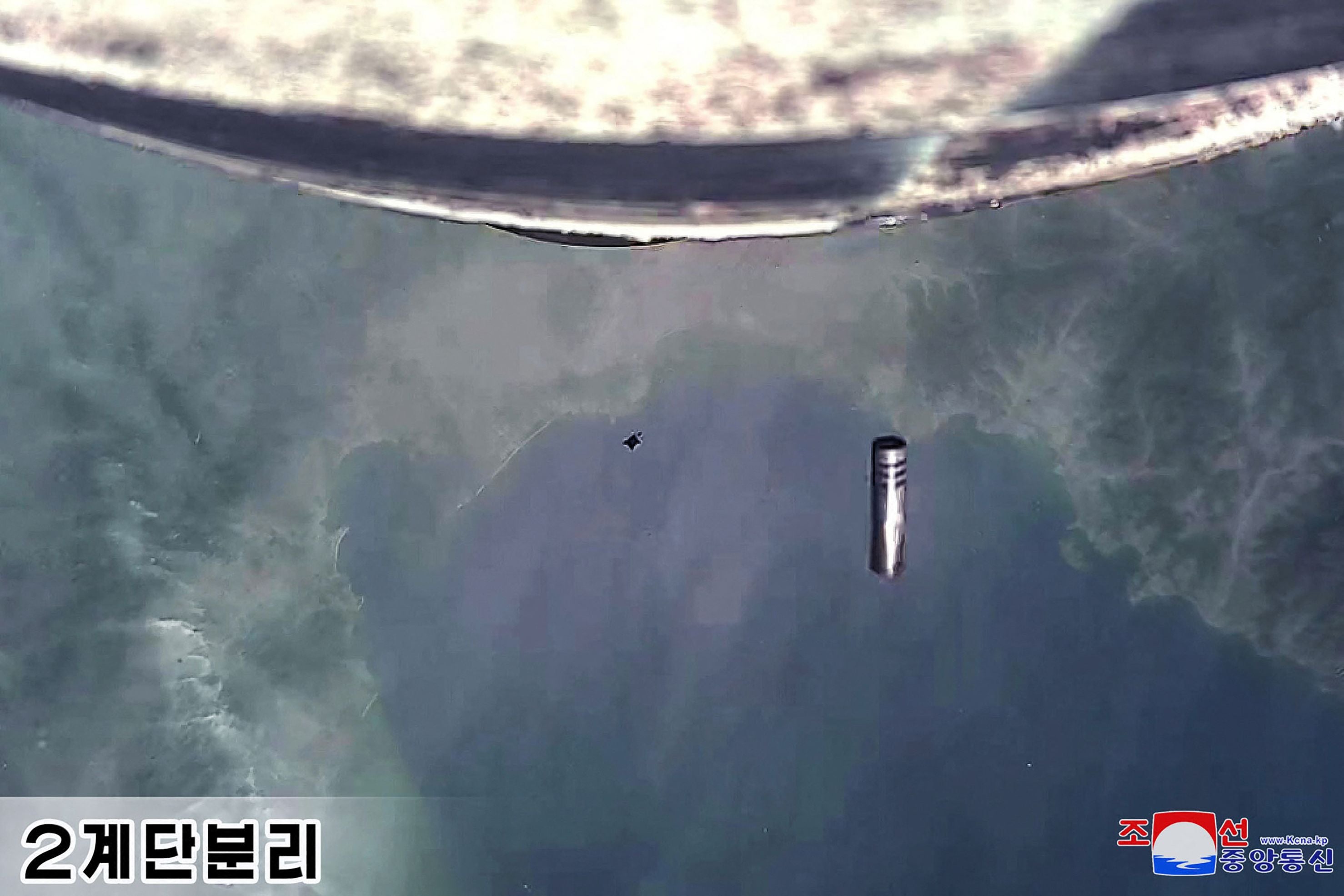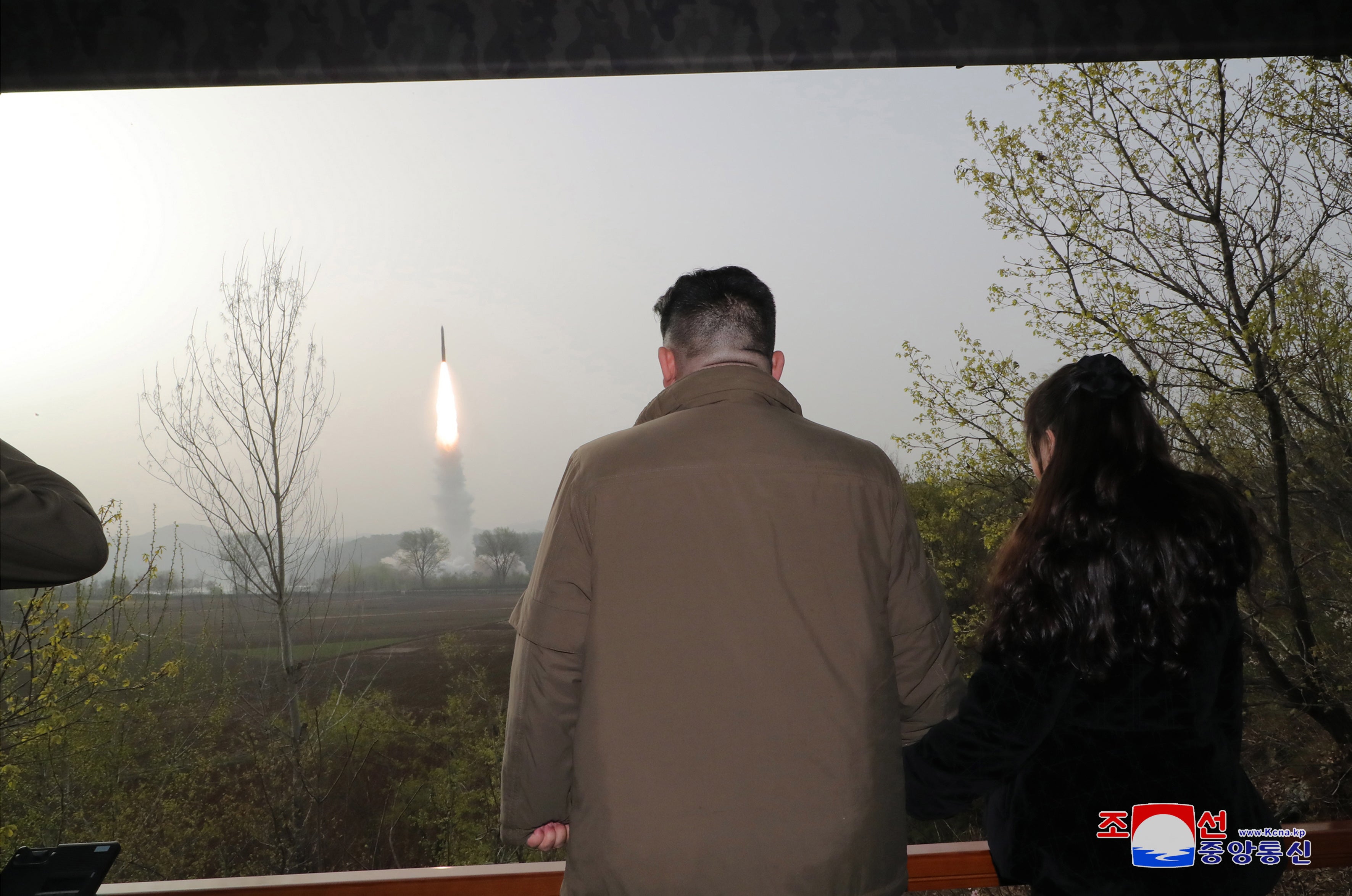North Korea claims ‘miraculous success’ in launch of most advanced missile ever
Kim Jong-un vows to ‘strike extreme horror’ on rivals

North Korea boasted of the “miraculous success” of its most powerful missile ever as it confirmed the launch of a new solid-fuel Hwasong-18.
Pyongyang had carried out the missile test on Thursday, prompting Japan to order the evacuation of citizens on Hokkaido island – a warning that was later retracted – and sending South Korea scrambling to analyse the type of weapon.
It was Pyongyang’s first test of a solid-fuel intercontinental ballistic missile (ICBM) – a more advanced type than the liquid-fuelled ICBMs it currently operates. A solid-fuel ICBM can be fired more quickly and are harder to detect when having intercontinental targets, such as the US.
State media KCNA said the North will “ceaselessly develop” its military might to become a “superpower” capable of deterring nuclear holocaust and enhance its nuclear war deterrence for self defence.
Calling it an important event of great historical significance, KCNA said the test was guided by North Korean dictator Kim Jong-un, who expressed satisfaction over the country’s “unshakable determination and practical ability to attain the goal of bolstering up the armed forces”.
Mr Kim pledged to further expand his nuclear arsenal to “constantly strike extreme uneasiness and horror” in rival countries and make them “feel regret and despair for their wrong choices”.
Analysts said the test was likely a technological advancement in North Korea’s goal of building a nuclear arsenal with the capability of striking the US, but the test did not demonstrate the new weapon system’s full capacity.

It was not clear with the test how far the North has come in mastering technologies to ensure the warhead would withstand atmospheric re-entry and accurately strike targets, they said.
The Hwasong-18 test is a “significant breakthrough for the North Koreans, but not an unexpected one”, according to Ankit Panda, an expert with the Carnegie Endowment for International Peace.
“The primary significance of solid-fuel ICBMs is in terms of what they’ll do for the survivability of North Korea’s overall ICBM force,” he said.
“Because these missiles are fueled at the time of manufacture and are thus ready to use as needed, they will be much more rapidly usable in a crisis or conflict, depriving South Korea and the United States of valuable time that could be useful to preemptively hunt and destroy such missiles.”
South Korea’s defence ministry said the North’s test launch is a “middle step” in developing a full-fledged solid-fuel ICBM system, the technology of which is not new.

Leif-Eric Easley, a professor at Ewha University in Seoul, said this was a blatant violations of UN Security Council resolutions by the Kim regime.
It “reflects an audacious plan of its own: to make North Korea a full-fledged nuclear power and demand concessions from other countries,” he said.
The missile test occurred in three stages, with the first testing at a standard ballistic trajectory and the others programmed to fly at higher angles after separation to avoid North Korea’s neighbours.
It was not clear if the third stage was testing where the warhead would be placed.
“Its first stage safely landed in the waters 10km off the Hodo Peninsula in Kumya County, South Hamgyong Province and the second stage in the waters 335 km east of Orang County, North Hamgyong Province,” KCNA said.

Solid-fuel ICBMs have been a part of Mr Kim’s extensive five-year arms development plan that was revealed in 2021.
The other weapons on Mr Kim’s wish list were also revealed to include tactical nuclear weapons, hypersonic missiles, nuclear-powered submarines and spy satellites.
North Korea has fired around 30 missiles so far this year in 12 different missile launch events in the face of US-South Korean military drills.
The powerful solid-fuel ICBM was tested just two days before the birth anniversary of Kim Il Sung, Mr Kim’s grandfather who founded North Korea.






Join our commenting forum
Join thought-provoking conversations, follow other Independent readers and see their replies
Comments